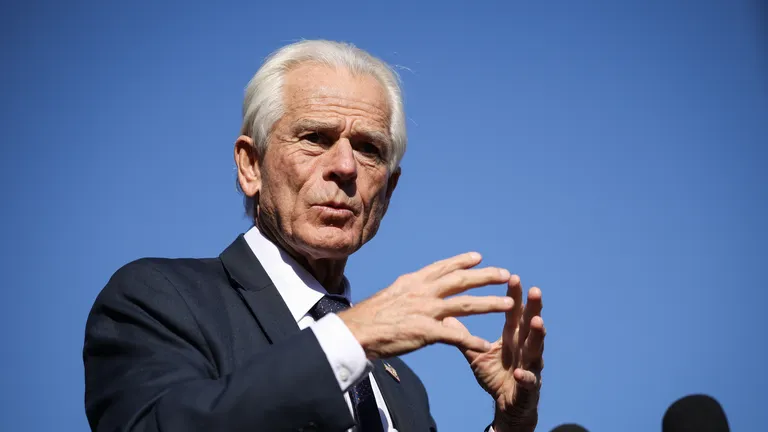
Political preferences and ideological leanings rarely develop in isolation. They are often shaped by deeper psychological needs that individuals seek to satisfy through political choices. Among these needs, recent scholarship highlights a particularly disruptive impulse: the “Need for Chaos.” This refers to motivations where individuals, particularly those who feel excluded or marginalised, view disorder as a pathway to challenge hierarchies and shift the balance of power. For some, chaos provides the opportunity to reconstruct society on more equitable grounds; for others, disruption is an end in itself (Petersen et al., 2020).

This paper examines the psychological foundations of chaos-seeking behaviour and explores its effects at both domestic and international levels. Drawing upon survey research and contemporary political developments, it argues that chaos is no longer simply the absence of order but is increasingly deployed as a deliberate strategy.
The Psychology of Chaos Seeking
Large-scale surveys conducted in countries such as Australia, Canada, the United Kingdom, and the United States suggest that the Need for Chaos is widely present across Western democracies (Arceneaux et al., 2021). Statistical methods like Latent Profile Analysis reveal that chaos-seekers do not share a single ideology. Instead, they represent a diverse set of individuals united more by dissatisfaction and psychological orientation than by partisan identity (Petersen et al., 2020).
Two main patterns of motivation appear in this research. One group views turbulence as a precursor to transformation—believing that existing systems must collapse before they can be rebuilt on fairer terms (Jost et al., 2017). Another group adopts a nihilistic stance, deriving satisfaction from disorder without envisioning any constructive alternative (Arceneaux et al., 2021).
In both cases, attraction to chaos stems from alienation and frustration with current institutions. For those who feel unheard or excluded, disruption offers symbolic recognition and, at times, tangible influence in the public sphere (Inglehart & Norris, 2019).
Political Effects of Individual Chaos Seeking
The presence of individuals motivated by chaos within democracies has far-reaching consequences. Such actors often amplify polarisation, spread conspiracy theories or misinformation, and support leaders who promise radical change (Finkel et al., 2020). Their motivations transcend left–right divisions, making them particularly difficult to address through conventional political approaches.
Populist movements and leaders have been especially effective in mobilising this impulse. By framing themselves as challengers to entrenched elites, they appeal to those who perceive disorder as a means of empowerment (Norris & Inglehart, 2019). In this way, the need for chaos helps explain the persistence of anti-establishment politics across multiple contexts.

Chaos in International Politics
The strategic logic of chaos extends beyond individuals and increasingly informs the behaviour of states. The post-1945 liberal international order, long dominated by the United States, is undergoing significant strain. Under the Trump administration, U.S. foreign policy turned inward, reducing support for alliances and multilateral institutions (Kagan, 2018; Goldberg, 2018; Patrick, 2018). This created opportunities for other actors to exploit instability (Wolf, 2018).
Revisionist states such as Russia and China have long pursued strategies aimed at undermining liberal norms. Yet even countries that previously benefited from the order have begun to take risks in moments of global turbulence. India, for instance, altered the constitutional status of Jammu and Kashmir in 2019 despite international pushback (Harris, 2018). This move demonstrates how states, much like individuals, can climb the “ladder of chaos” to pursue controversial goals.
Fiction, Metaphor, and Reality
Popular culture provides metaphors that help explain this phenomenon. In Game of Thrones, the character Littlefinger famously remarks that “chaos is a ladder.” For him, instability is not a danger but an opening for advancement. This mirrors the way both marginalised individuals and ambitious states employ disruption to pursue recognition or strategic gains (Jasanoff, 2020).
Whether on the domestic or international stage, the underlying pattern is consistent: while some see chaos as a chance for renewal, others embrace it for destructive satisfaction.

India’s Case: The Ladder of Chaos in Practice
India’s 2019 decision to revoke Jammu and Kashmir’s special constitutional provisions exemplifies how states act opportunistically in periods of disorder. By making this change while the global community was distracted, New Delhi secured immediate domestic and territorial advantages (Harris, 2018).
However, such strategies carry long-term risks. Just as individuals driven by chaos may lose control of the forces they unleash, states that depend on instability to advance their interests risk destabilising the very systems that enable their prosperity (Mearsheimer, 2019).
Conclusion
Chaos-seeking behaviour reflects deep dissatisfaction with current power structures, manifesting in both individual psychology and state strategy. At the personal level, it satisfies needs for status and recognition. In democratic politics, it contributes to polarisation and the rise of populism. At the global level, it allows states to take risks and pursue contested objectives during periods of disorder.
The challenge for policymakers is to recognise chaos not as a temporary breakdown of order but as a purposeful tool. Addressing this requires strengthening institutions while also grappling with the psychological and political roots of alienation. Without such measures, both individuals and states will continue to see chaos as a viable ladder to power, with potentially destabilising consequences for the world.
Written by – Purnendu Bhowmick
Edited by – Neelambika Kumari Devi
The post Chaos-Seeking Behaviour and Its Political Consequences appeared first on The Economic Transcript.






